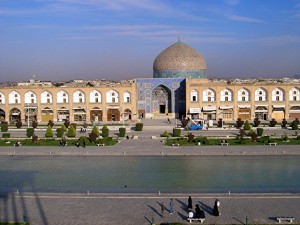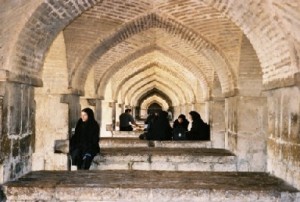Paul Taylor Hess is participating in Global Exchange’s upcoming Environmental Protection
and Sustainable Development trip to Cuba. Below Paul shares some of his thoughts as he prepares for this adventure.
—
“I’m Going to Cuba…to Study Business” by Paul Taylor Hess
Over the previous two years as part of my MBA in Sustainable Business program at the Bainbridge Graduate Institute (BGI), I’ve studied many things pertaining to both business and sustainability. We’ve explored management principles, methods for getting the most out of collaborative teams, principles of sustainability, the Natural Step, the Triple Bottom Line, issues of social and environmental justice facing corporations and communities, finance and accounting, quantitative methods, organizational change, systems thinking and the list could go on.
It has, up to now, been a good mix of theory and practice.
In the hopes of upping the ante on the ‘practice’ side of the equation, BGI students are now in our second year of traveling abroad to see how sustainability works on the ground in other places. So, with one year to go in the program before I walk the MBA walk, I will join about two dozen of my classmates on a two-week study tour to Cuba beginning later this week. We will visit with governmental officials, educators, medical professionals, urban (and rural) farmers, permaculturists, and especially many new entrepreneurs.
We’ll be traveling with the amazing people at Global Exchange, who’ve been traveling to Cuba for about 2 decades and connecting people from the US with people in Cuba in ways that break through the rhetoric (on both sides) and establish deep bonds that promote real understanding.
I’ve already been asked – and will probably be again – why a business school would travel to Cuba in the first place. I mean, aren’t they communists there?
Yes, they are (technically, sort of), but they are also people living in a system essentially up until now devoid of what we in the US would call a “market economy” encouraging people to go into business for themselves for the (theoretical) benefit of the wider economy and society.
This is changing rapidly in Cuba, as evidenced by the 2010 report that 500,000 state employees would be laid off in 2011 and encouraged to start new business ventures and help grow and diversify the economy. This represents just part of the tectonic shifts taking place in Havana and throughout the island as the Castro reign, seemingly, draws to a close.
We travel first and foremost to learn, to establish connections, offer our own insights to Cubans, deepen our understanding of the Cuban people’s different perspectives and the lessons they’ve learned in a starkly different culture and economic system than our own, and (hopefully) begin an ongoing dialog about what makes a business both successful and sustainable, in terms of its own financial survival and its connection to the community that supports it in ways that transcend only financial concerns.
Personally, I am curious about the cultural components of Cuban society that will support (or discourage) new entrepreneurs to step up, roll the dice and take a chance on something new.
How does a system with no history of (X) begin doing (X)? In what ways will the government interact with these new ventures? How will the emergence of an entrepreneurial class change the culture of Cuba? How will the culture (and economic system as it exists today) alter what we in the US expect of entrepreneurs and their start-up businesses? What can we learn about and improve upon in our system when compared closely to Cuba’s?
Stay tuned for more (later in July) about these and other topics.

